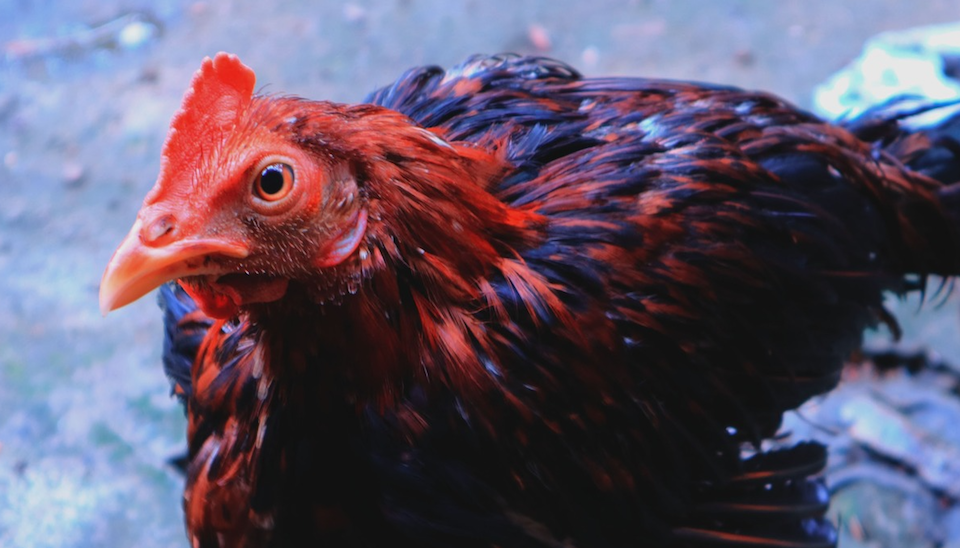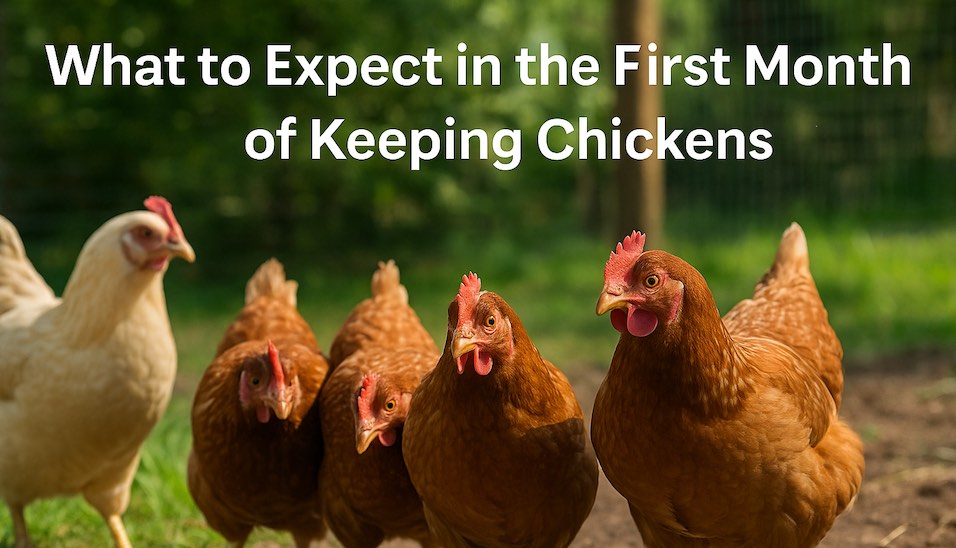Bathing chickens
(:1f414:) Can I give my chicken a bath?
Do you bath your chickens? We recently met a customer who has a small flock of pampered pets that just love a bath. But is it good to bathe your chooks?
The simple answer to the question, “Can I give my chicken a bath?” is yes. But only if necessary.
Key takeaways
- Chickens are Self-Cleaning: Chickens have a complex bathing routine and don't normally need baths. It is better to let chickens clean themselves because they produce oil to condition their feathers, which is removed when we bathe them.
- Occasionally Chickens Need to be Bathed: Chickens might need a bath if they have fallen into something, are very muddy, have been pooped on or have a dirty butt.
- How to Bath a Chicken: Spot clean your chickens if possible. If you have to bathe a chicken, use warm water and a very gentle soap. Never pull at caked feathers, as you can tear the skin. Always dry your chicken to prevent chilling.
(:1f414:) Do chickens clean themselves?
If you watch chickens for awhile, you will notice that they spend a lot of time preening and arranging their feathers. Chicken besties will often preen each other.
When birds preen, they use oil from their uropygial gland, which is located at the base of the tail. Birds smooth the oil over their feathers and skin. The oil helps to clean, waterproof and maintain feathers. In some birds, the oil has antiparasitic and antimicrobial qualities as well.
Chickens begin their cleaning routine by dust bathing. They roll around in dust or dirt, throwing it over themselves and between their feathers. The dust removes dead skin particles, excess oil and dirt, as well as parasites like lice, mites and their eggs. After a thorough dirt bath, your chickens will then shake all the dust and dirt out of their feathers.
After dust bathing, chickens will often lie in the sun, stretching out their wings to allow the sunlight to penetrate their feathers. This also helps in the cleaning process, as many parasites are killed by direct sunlight.
Chickens then preen themselves, rearranging their feathers and removing any remaining dirt with their beaks. They spread oil from their preen glad over their feathers. This oil is essential to maintaining feather health and quality.
It is because of preen oil that you really shouldn’t bath a chicken, except in extreme circumstances.
Firstly, chickens become cold very easily when their feathers are wet. That’s why so many of them avoid rain. Wet chickens may pick up respiratory infections and other diseases.
Secondly, washing chickens removes the oil from their feathers, causing damage and drying out the skin. It also decreases waterproofing, making them more susceptible to wet, cold weather.
(:1f414:) When should I bath my chicken?
However, there are some circumstances in which it is necessary to bath a chicken. Namely, if the chicken:
- Is extremely muddy
- Has fallen into oil, molasses etc. We had one bird fall into a tub of yoghurt!
- Has been pooed on
- Has a dirty vent (a poo-caked bottom)
Bathing a chicken in warm water is also sometimes recommended in the case of egg bound hens, prolapse or pasty butt.
(:1f414:) How to bath a chicken
If you have to bath a chicken:
- Use warm water
- Don’t use harsh chemicals
- Spot clean if possible
- If the chicken has caked on mud or poo, allow it to soak first
- Never pull at caked on muck
- Avoid rubbing feathers the wrong way
- If the day is warm, towel the bird dry gently and put it in the sun to dry off properly and preen
- If the day is cold, dry the bird inside next to a heat source or with a hair dryer
Also be prepared for flapping and splashing initially. Your chicken will probably try to escape the bath, so we recommend wearing gloves and bathing your chicken outdoors if possible. Don't let go of your bird once you start the process, or you will find yourself chasing a wet chicken around the yard!
Once they become accustomed to bathing, chickens can almost drift off to sleep in the warm water, so don't leave your bird unsupervised!
How to Bathe a Chicken: Step-by-Step Guide
-
Gather Supplies
You'll need the following:
- Warm water: Fill a tub or sink with warm (not hot) water deep enough to cover the chicken's body or the area that needs cleaning. It is usually easier to have a tub for washing and a tub for rinsing already prepared.
- Mild soap or pet-safe shampoo: Avoid harsh chemicals or soaps that can irritate the chicken’s skin and feathers. Choose something mild like baby shampoo or a pet-safe product.
- Towels: Have several towels on hand to gently dry the chicken after the bath.
- Soft brush or cloth: For gentle scrubbing if needed. Only use the brush on the chicken's feet or legs.
- A cup or container: For pouring water over your chicken, if needed.
- Optional: Hairdryer or a warm heat source for drying on cooler days.
-
Spot Clean If Possible
Assess the chicken. If only certain areas of the chicken are dirty (e.g., mud on the feet or poo on the feathers), attempt to spot clean with a damp cloth or sponge. If there is too much to spot clean, you can still clean just the affected area, such as the vent, in the bath. This can reduce stress and is often quicker.
-
Soak the Chicken for Heavy Dirt
If the bird has caked-on mud, feces, or other debris, gently place it in the warm water to soak. Allow the dirt to loosen naturally. This can take several minutes, so be patient.
Be gentle: Never pull or tug at dried, caked-on muck, as this can cause pain or damage to the chicken’s feathers or skin. Let the water do the work.
-
Clean the Chicken
Gently wash the chicken using your hands. A soft cloth can be used on feathers, and a brush can be used on feet or leg areas. Only wash the areas that need it and be particularly gentle around sensitive areas like the head and vent.
Rinse: Make sure to rinse the chicken thoroughly to remove any soap residue. Fresh warm water may be used for this step. While some people recommend a vinegar rinse, this may strip more of the natural oils from the chicken's feathers, so we don't do this.
-
Dry the Chicken
Towel drying: Use a soft towel to pat the chicken dry gently. Avoid rubbing as this can damage the feathers.
If the weather is warm: Allow the chicken to finish drying by placing it in a sunny, protected area where it can preen and dry off naturally. Ensure that the area is predator-safe and not draughty.
If the weather is cold: Dry the chicken indoors near a safe heat source. Alternatively, use a hairdryer on a low, warm setting (never hot) to gently dry the feathers. Be careful not to overheat the bird.
-
Monitor the Chicken After the Bath
Check for signs of stress or cold, ensuring that the chicken is warm and not shivering after the bath, especially in cooler weather. Allow the chicken time to preen, as this helps redistribute oils and realign their feathers properly.
Do you have more chicken keeping questions? Send us an email through the contact form! And sign up for our newsletter to receive monthly emails with chicken keeping advice and special deals on Dine a Chook products!
Happy chicken keeping!
Rachael at Dine a Chook




